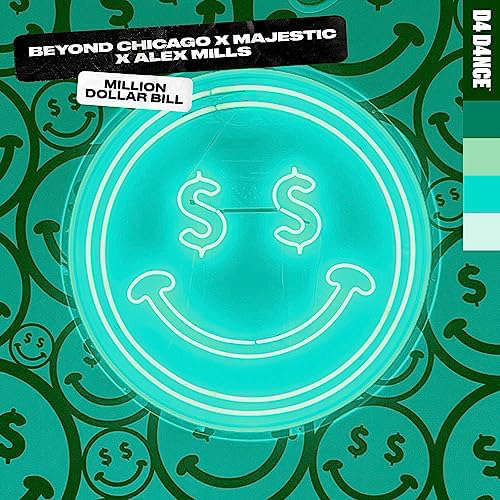In years to come, it may become known simply as Chequers '25.
But today's summit between Sir Keir Starmer and Donald Trump, at the prime minister's country retreat, has the potential to be a landmark moment in UK-US history.
There's plenty of scope for it to go horribly wrong, of course: over Jeffrey Epstein, Sir Keir's pledge to recognise Palestine, the president's lukewarm support for Ukraine, the Chagos Islands sell-off, or free speech.
Trump state visit live - read the latest
But on the other hand, it could be a triumph for the so-called "special relationship" - as well as relations between these two unlikely allies - with deals on trade and tariffs and an improbably blossoming bromance.
Either way, this Chequers summit - on the president's historic second state visit to the UK - could turn out to be one of the most notable one-to-one meetings between PM and president in 20th and 21st century history.
Sir Keir and Mr Trump have already met several times, most recently at The Donald's golf courses in Scotland in late July and, before that, memorably at the White House in February.
It was then that the PM theatrically pulled King Charles's invitation for this week's visit out of his inside pocket in a spectacular stunt surely masterminded by the "Prince of Darkness", spin doctor-turned-ambassador (until last week, anyway) Peter Mandelson.
And over the years, there have been some remarkable and historic meetings and relationships, good and bad, between UK prime ministers and American presidents.
From Churchill and Roosevelt to Eden and Eisenhower, from Macmillan and JFK to Wilson and Johnson, from Thatcher and Reagan, to Blair and Bush, and from Cameron and Obama… to Starmer and Trump, perhaps?
A brief history of relationships between PMs and presidents
Throughout UK-US history, there have been many examples of a good relationship and close bond between a Labour prime minister and a Republican president. And vice versa.
Also, it has not always been rosy between prime ministers and presidents of the two sister parties. There have been big fallings out: over Suez, Vietnam and the Caribbean island of Grenada.
Leading up to this Chequers summit, the omens have not been good.
First, the PM was forced to sack his vital link between Downing Street and the Oval Office, Lord Mandelson, over his friendship with Epstein.
Second, the president arrived in the UK to a barrage of criticism from London mayor Sir Sadiq Khan, who accused him of doing more than anyone else to encourage the intolerant far right across the globe.
And third, in a video-link to the "Unite the Kingdom" march in London last weekend, one-time Trump ally Elon Musk called for a dissolution of parliament and a change of government and appeared to encourage violent protest.
Churchill and FDR
Back in the mid-20th century, the godfather of the "special relationship" was wartime leader Sir Winston Churchill, though it was 1946 before he first coined the phrase in a speech in the US, in which he also spoke of the "iron curtain".
It was in 1941 that Churchill held one of the most significant meetings with a US president, Franklin D Roosevelt, at a Washington conference to plot the defeat of Germany after Japan's attack on Pearl Harbour.
Churchill arrived in Washington in December after a rough 10-day voyage on a Royal Navy battleship and stayed three weeks, spending Christmas in the White House and on Boxing Day becoming the first UK PM to address Congress.
The close bond between Churchill and Roosevelt was described as a friendship that saved the world. It was even claimed one reason the pair got on famously was that they were both renowned cigar smokers.
Churchill and Truman
After the war ended, Churchill's "special relationship" speech, describing the alliance between the UK and US, was delivered at Westminster College, in Fulton, Missouri in March 1946.
The speech was introduced by president Harry Truman, a Democrat, with whom Churchill had attended the Potsdam Conference in 1945 to negotiate the terms of ending the war.
These two were also close friends and would write handwritten letters to each other and address one another as Harry and Winston. Mr Truman was also the only US president to visit Churchill at Chartwell, his family home.
Eden and Eisenhower
But the transatlantic cosiness came to an abrupt end in the 1950s, when Churchill's Conservative successor Anthony Eden fell out badly with the Republican president Dwight Eisenhower over the Suez Crisis.
Mr Eden did visit Mr Eisenhower in Washington in January 1956, and the official record of the meeting describes the discussion as focussing on "policy differences and Cold War problems".
Macmillan and JFK
But in the early 1960s, a Conservative prime minister and a Democrat president with seemingly nothing in common, the stuffy and diffident Harold Macmillan, and the charismatic John F Kennedy, repaired the damage.
They were credited with rescuing the special relationship after the rupture of the Suez Crisis, at a time of high tensions around the world: the Berlin Wall, the Cuban missile crisis, and the threat of nuclear weapons.
The two leaders exchanged handwritten notes, as well as Christmas and birthday cards. The Macmillans visited the Kennedys twice at the White House, in 1961 and 1962 - the second described in the US as a "momentous" meeting on the Cuban crisis.
The relationship was abruptly cut short in 1963 by Supermac's demise prompted by the Profumo scandal, and JFK's assassination in Dallas. But after her husband's death, Jacqueline Kennedy was said to have had a father-daughter relationship with Macmillan, who was said to have been enchanted with her.
Wilson and LBJ
After JFK, the so-called special relationship cooled once again - and under a Labour prime minister and Democrat president - when Harold Wilson rejected pressure from Lyndon B Johnson to send British troops to Vietnam.
Mr Wilson became prime minister in 1964, just two months after LBJ sent US troops. His first overseas trip was to the White House, in December 1964, and the PM returned to tell his cabinet: "Lyndon Johnson is begging me even to send a bagpipe band to Vietnam."
Thatcher and Reagan
And even though Margaret Thatcher and Ronald Reagan were ideological soulmates, Thatcher was furious when she wasn't consulted before the Americans invaded Grenada in 1983 to topple a Marxist regime.
Even worse, according to Mrs Thatcher's allies, a year earlier, Reagan had stayed neutral during the Falklands War. Reagan said he couldn't understand why two US allies were arguing over "that little ice-cold bunch of land down there".
But their relationship didn't just survive, it flourished, including at one memorable visit to the presidential retreat at Camp David in 1984, where Reagan famously drove Mrs T around in a golf buggy.
They would also memorably dance together at White House balls.
Blair and Bush
Camp David was also where, in 2001, Republican president George W Bush and Labour's Sir Tony Blair embarked on the defining mission of his premiership: the Iraq War. It was to prove to be an historic encounter.
The war was the turning point of Sir Tony's decade in Number 10. He was branded a liar over claims about Saddam Hussein's "weapons of mass destruction", he was vilified by the Labour left, and it was the beginning of the end for him.
And to add to the suspicion among Sir Tony's critics that he was Mr Bush's poodle, in 2006 at a G8 summit in St Petersburg - that wouldn't happen now - a rogue microphone picked up the president calling, "Yo, Blair! How are you doing?"
Cameron and Obama
Some years later, the Tory prime minister sometimes called the "heir to Blair", David Cameron, bonded over burgers with the Democrat president Barack Obama, serving a BBQ lunch to military families in the Downing Street garden. They also played golf at the exclusive Grove resort in 2016.
They seemed unlikely allies: Obama, the first African-American president, and Cameron, the 19th old Etonian prime minister. It was claimed they had a "transatlantic bromance" in office. "Yes, he sometimes calls me bro," Lord Cameron admitted.
But not everything went well.
The Tory PM persuaded Mr Obama to help the Remain campaign in the 2016 Brexit referendum, when he claimed the UK would be "at the back of the queue" on trade deals with the US, if it left the EU. It backfired, of course.
Now it's Sir Keir Starmer's turn to tread a delicate and potentially hazardous political tightrope as he entertains the latest - and most unconventional - US president.
The greatest dangers for Sir Keir will be a news conference in the afternoon, in the gardens, if the weather permits.
Good luck, as they say, with that.
Before then, there's the potential for what the Americans call a "pool spray", one of those impromptu, rambling and unpredictable Q&As we've seen so many times in the Oval Office.
For Sir Keir, what could possibly go wrong?
Chequers '25 could be memorable and notable, like so many previous meetings between a PM and a president. But not necessarily for the right reasons for this UK prime minister.

(c) Sky News 2025: Trump-Starmer talks could be landmark moment - and join pantheon of UK-US summits


 Trump celebrates as Jimmy Kimmel taken off air over Charlie Kirk comments
Trump celebrates as Jimmy Kimmel taken off air over Charlie Kirk comments
 Migrants 'making mockery' of law, says home secretary - as she attacks 'intolerable' court ruling
Migrants 'making mockery' of law, says home secretary - as she attacks 'intolerable' court ruling
 'Kill zone' around crucial Ukrainian city as Russian forces try to squeeze defenders out
'Kill zone' around crucial Ukrainian city as Russian forces try to squeeze defenders out
 Meta announces new smart glasses with a bold claim. I've tried them - and am unconvinced
Meta announces new smart glasses with a bold claim. I've tried them - and am unconvinced

